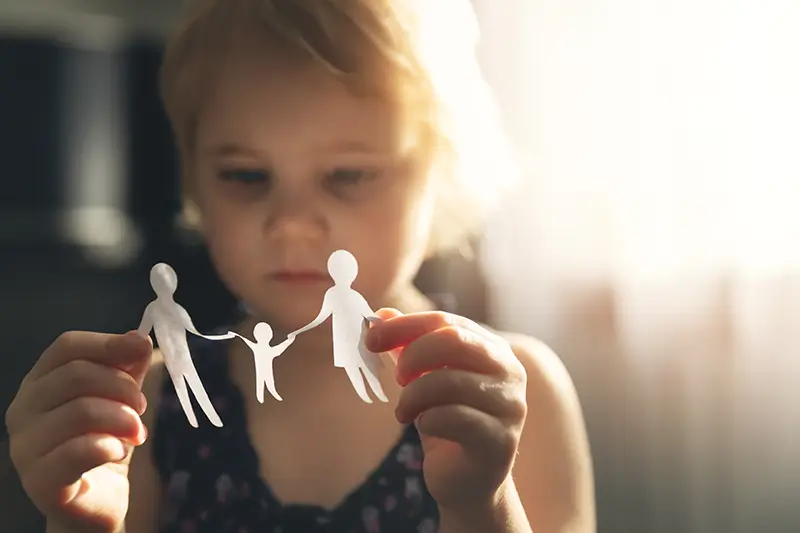There are many reasons and situations where a person who is not a biological parent of a child may wish to apply for custody.
Let’s take a look at the following scenario, for example. You’re married or in a long-term de facto relationship with someone who has a child from a previous relationship. You’ve played an active role in this child’s life as the step-parent for many years, but now you and the child’s biological parent are separating. Where do you fit now in the child’s life?
According to the Family Law Act 1975, any person ‘concerned with the care, welfare or development of the child’ can apply for a parenting order, even if you are not the child’s biological parent. Don’t be disheartened that you may be labelled the ‘non-parent’ in this scenario for legal purposes, because the court must act in the child’s best interests and therefore preferential treatment isn’t automatically given to biological parents.
It’s the parenting that matters most, not the parenthood, as put eloquently by a judge in a recent ‘non-parent’ matter. In this case, the stepfather (or the ‘non-parent’) of the child had three other children with the child’s biological mother. The mother was concerned that the child would not receive fair treatment in comparison to the stepfather’s three biological children should they all spend time together. However, the Court cited the views of an expert witness and determined that the child ‘clearly identified [the stepfather] as a parental figure’ and it was therefore in their best interests to be granted time with each other, along with the other children.
Keeping siblings together as much as possible to provide stability and consistency in the child’s life was a key factor in this decision. The child also did not see her biological father often which played an important role in the decision, with the court finding that the child would benefit from having a consistent and positive male role model in her life. The court also considered the relationship between the biological mother and the stepfather in this situation to understand why the mother would have hesitation in wanting her child to spend time with the stepfather.
There are many other non-parents that often apply for parenting orders, such as grandparents, for a variety of unique reasons, such as a mental health issue that affects the biological parent’s capacity to care for the child. Whoever you are and whatever role you play in the child’s life, the court is always going to put the child’s best interests first. They’ll do this by considering multiple factors, including:
-
- The nature of the child’s relationship with you;
- The likely effect of changing the child’s circumstances, including the effect of separation of someone they have been living with; and
- Your capacity to meet the child’s needs – including emotional and intellectual needs.
- The nature of the child’s relationship with you;
There’s a catch though – unless you are the child’s parent or grandparent, you do not have an automatic right to apply for a parenting order. Instead, you must establish that through your actions over time you have become a person who is ‘concerned with the care, welfare and development of the child’. If you can successfully establish this, then you can apply to the court for a parenting order and a Judge must carefully consider your application as if you were the child’s biological parent.



